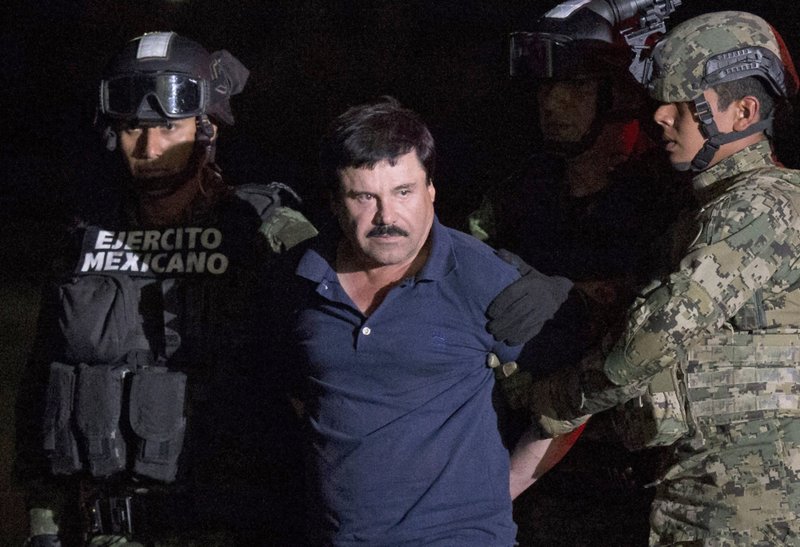NEW YORK — Saying they were bringing the world's most notorious drug lord to justice, U.S. prosecutors Friday described Joaquin "El Chapo" Guzman as the murderous architect of a three-decade-long web of violence, corruption and drug addiction and announced they were seeking a $14 billion forfeiture from him.
Extradited Thursday from Mexico, Guzman was due later Friday in a federal court in Brooklyn. Prosecutors have sought to bring him to a U.S. court for years while he made brazen prison escapes and spent years on the run in Mexico.
"Today marks a milestone in our pursuit of Chapo Guzman," said Robert Capers, the U.S. attorney in Brooklyn. "He's a man known for a life of crime, violence, death and destruction, and now he'll have to answer for that."
As boss of the Sinaloa cartel, Guzman presided over a syndicate that shipped tons of heroin and cocaine to the U.S., using tanker trucks, planes with secret landing strips, container ships, speedboats and even submarines, prosecutors said. Perhaps most famously, Guzman's cartel built elaborate tunnels under the U.S. border to transport drugs, said Wifredo Ferrer, the U.S. attorney in Miami.
The cartel made billions of dollars in profits — prosecutors are seeking a $14 billion forfeiture — and employed hit men who carried out murders, kidnappings and acts of torture, according to prosecutors. And the Sinaloa smugglers also helped fuel an epidemic of drug abuse in the U.S. in the 1980s and '90s, the prosecutors said.
It wasn't immediately clear who would represent Guzman in court; a lawyer is to be appointed. His lawyers in Mexico called his extradition, which he had fought, a political move to distract from gasoline protests there.
The Drug Enforcement Administration flew him to New York from the Mexican border city of Ciudad Juarez on Thursday — hours before the inauguration of President-elect Donald Trump, who has lashed out at Mexico.
When Guzman got off the plane, "as you looked into his eyes, you could see the surprise, you could see the shock, and to a certain extent, you could see the fear, as the realization kicked in that he's about to face American justice," said Angel Melendez, who leads U.S. Immigration and Customs Enforcement's homeland security investigations in New York.
The U.S. has been trying to get Guzman in a U.S. court since he was first indicted in California in the early 1990s. Now in his late 50s, he faces the possibility of life in a U.S. prison. Prosecutors had to agree to not seek the death penalty as a condition of the extradition.
Read Saturday's Arkansas Democrat-Gazette for full details.
